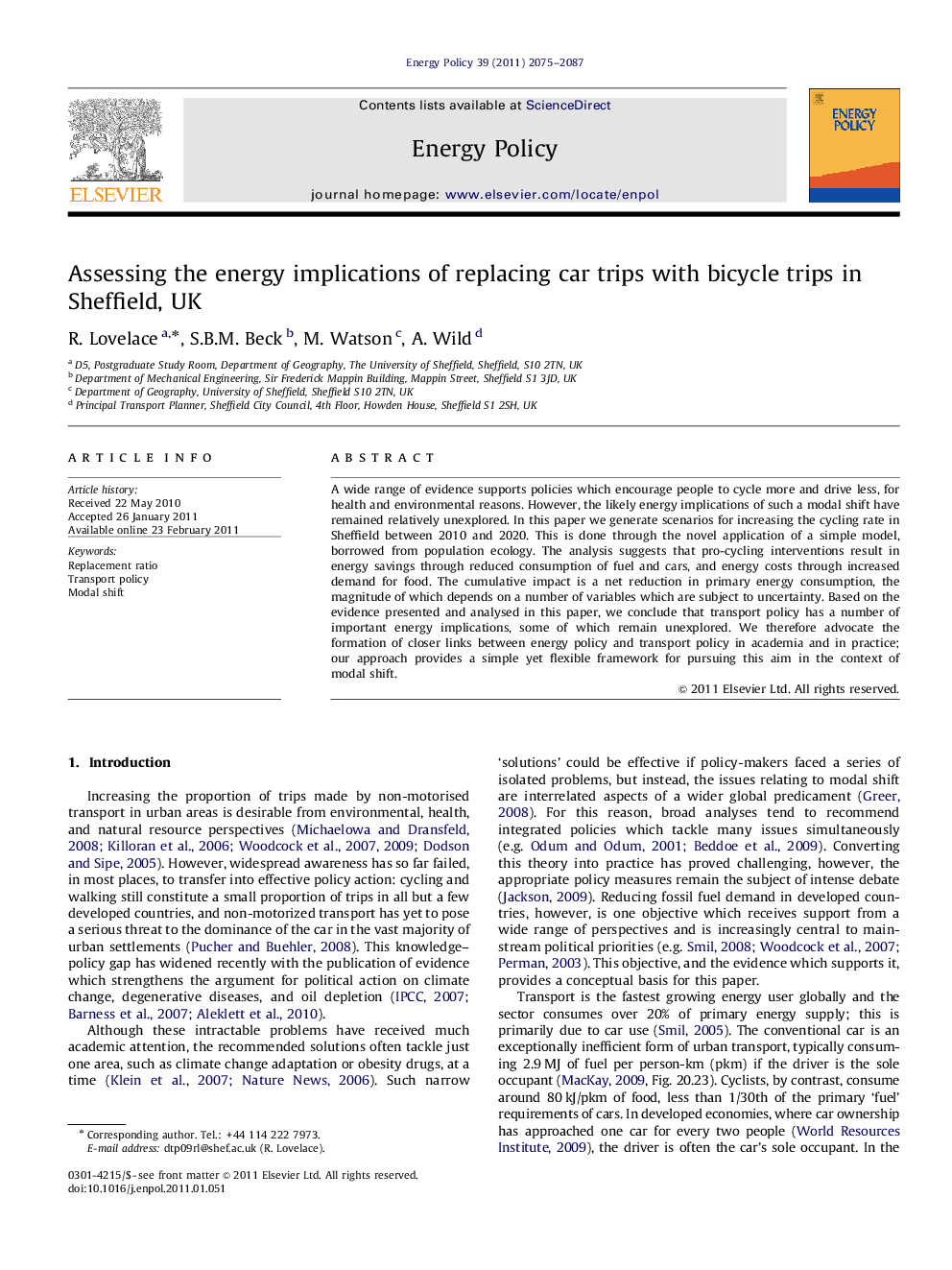| Article ID | Journal | Published Year | Pages | File Type |
|---|---|---|---|---|
| 993126 | Energy Policy | 2011 | 13 Pages |
A wide range of evidence supports policies which encourage people to cycle more and drive less, for health and environmental reasons. However, the likely energy implications of such a modal shift have remained relatively unexplored. In this paper we generate scenarios for increasing the cycling rate in Sheffield between 2010 and 2020. This is done through the novel application of a simple model, borrowed from population ecology. The analysis suggests that pro-cycling interventions result in energy savings through reduced consumption of fuel and cars, and energy costs through increased demand for food. The cumulative impact is a net reduction in primary energy consumption, the magnitude of which depends on a number of variables which are subject to uncertainty. Based on the evidence presented and analysed in this paper, we conclude that transport policy has a number of important energy implications, some of which remain unexplored. We therefore advocate the formation of closer links between energy policy and transport policy in academia and in practice; our approach provides a simple yet flexible framework for pursuing this aim in the context of modal shift.
